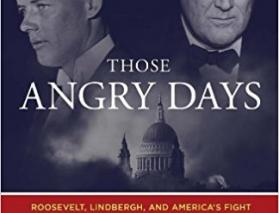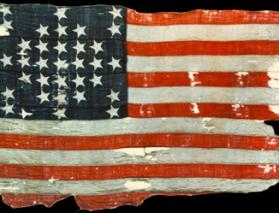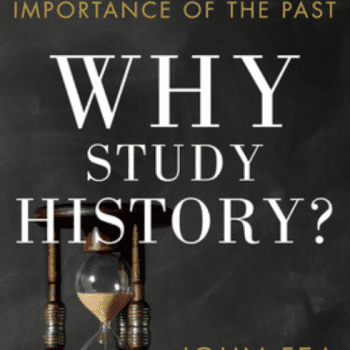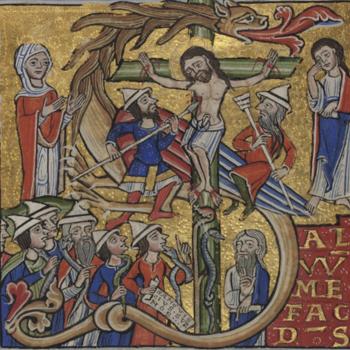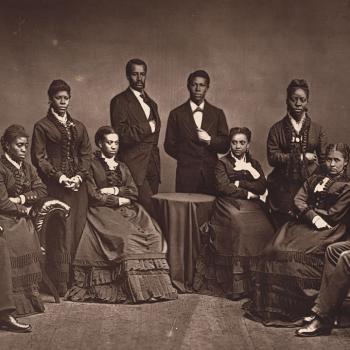Today marks the publication of The Pietist Option: Hope for the Renewal of Christianity, my book with Mark Pattie. But even historians shouldn’t live in the past! So let’s talk about my next project…
Last week, City Pages (Minneapolis’ alternative newspaper) published an article entitled, “Who said it: Hubert Humphrey, Charles Lindbergh, or Adolf Hitler?” Why Humphrey and Lindbergh? Our airport’s two terminals are named after them. Why Hitler? Well, go ahead and read the article first… or skip past the images of books on this subject and I’ll give away the answer.
Answer: of the nineteen quotations, five idealistic lines came from the former U.S. Vice President, U.S. Senator, and Mayor of Minneapolis, and the fourteen terrible things that you’d like to believe spewed from the mind of Hitler actually originated with Minnesota’s most famous native son. America’s greatest aviator.
The subject of my next book.
Ever since I started to toy with the idea of writing the “spiritual (but not religious) biography” of Charles Lindbergh that I’ve contracted with Eerdmans, I’ve dreaded the day I’ll finally need to write a chapter or two on Lindbergh’s response to the rise of Nazi Germany.
It’s not that I’m afraid to take on the debates over American isolationism. While I think Lindbergh’s nemesis in the White House was clearly proved right in his assessment of Nazi Germany, I can understand the arguments for neutrality made in 1939-1941, arguments that persuaded a large proportion of the American population right up until Pearl Harbor. (See my earlier post on the Christian history of the America First movement.)
And standing on this side of World War II, it’s all too easy to condemn Lindbergh’s misjudgment of Nazi Germany and Adolf Hitler; such errors mar the record of better men than he. Plenty of Americans and Europeans saw Josef Stalin as the greater threat to what they thought of as “Christian civilization”; many joined Lindbergh in “[burying] his head in the sand when confronted with the crimes of inhumanity that repelled so many others” (Scott Berg’s assessment on p. 382 of his Pulitzer-winning authorized biography of Lindbergh).
But what will I do with statements like the following, some public and some made (perhaps even more revealingly) in confidence?
- “Whenever the Jewish percentage of total population becomes too high, a reaction seems to invariably occur.” (from a private conversation with American diplomat William R. Castle just over a week before Germany invaded Poland)
- “The rights of men and nations must be readjusted to coincide with their… strength.” (for The Atlantic Monthly in March 1940)
- “[The Jews’] greatest danger to this country lies in their large ownership and influence in our motion pictures, our press, our radio, and our government.” (from Lindbergh’s most infamous speech on behalf of the America First Committee, given in Des Moines, Iowa on September 11, 1941)
City Pages didn’t even include the following entry from Lindbergh’s journal. Quoted by Berg, the aviator wrote it after learning that he shared an April 1939 ocean voyage to America with Jewish passengers:
Imagine the United States taking these Jews in addition to those we already have. There are too many in places like New York already. A few Jews add strength and character to a country, but too many create chaos. And we are getting too many. This present immigration will have its reaction.
In addition to the troubling comments about Jews, Lindbergh occasionally articulated a position that can only be described as white supremacy. “[Germany] alone,” he wrote for Reader’s Digest in November 1939, “can either dam the Asiatic hordes or form the spearhead of their penetration into Europe.” He described the airplane as “one of those priceless possessions which permit the White race to live at all in a pressing sea of Yellow, Black, and Brown” and ultimately warned that “We, the heirs of European culture, are on the verge of a disastrous war, a war within our family of nations, a war which will reduce the strength and destroy the treasures of the White Race, a war which may even lead to the end of our civilization.”
Nor are such comments incidental to the spiritual focus of my book. They come from the time in Lindbergh’s life when he was beginning to rethink the limits of science — ironically, because of his collaboration with a scientist: the French medical researcher and Catholic mystic Alexis Carrel. “Carrel’s mind,” recalled Lindbergh, “flashed with the speed of light in space between the logical world of science and the mystical world of God.” That mind, however, also decided that racial purity was inseparable from civilizational strength. In his 1935 bestseller Man, the Unknown, Carrel concluded that “[e]ugenics is indispensable for the perpetuation of the strong. A great race must propagate its best elements.” Before long, Carrel and Lindbergh’s conversations turned to “race betterment.”
“Unfortunately,” acknowledges Berg, “similar discussions were raging throughout the Third Reich, a coincidence that would not be lost on future detractors of either Carrel or Lindbergh.”
Contemplating the task of the biographer in a series here last fall (before I’d even written the Lindbergh proposal), I mentioned John Fea’s concern that he had been too sympathetic to his first subject, Philip Vickers Fithian. “That,” I wrote, cryptically, “will not be a problem if I end up pursuing the editor’s suggestion and try to tell the story of a more controversial figure who left behind a rather ambivalent legacy.”
Yep, Lindbergh.
Conscious of what Andy Seal called the difference “between empathy and exoneration,” I even wondered if there aren’t “times when a historian ought to engage in biography as an act of aggression, and make meaning of a life in a way that the subject herself would no doubt reject?”
I don’t yet have a good answer to that question. But sometime before the manuscript is due in August 2020, I’ll need to come up with one. The historical evidence of Lindbergh’s response to Nazism and his attitudes about Jews and people of color is not going to disappear, and if anything, current events have only made that part of Lindbergh’s story more meaningful.


